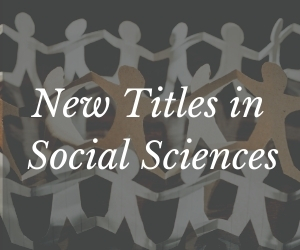System Upgrade on Tue, May 28th, 2024 at 2am (EDT)
Existing users will be able to log into the site and access content. However, E-commerce and registration of new users may not be available for up to 12 hours.For online purchase, please visit us again. Contact us at customercare@wspc.com for any enquiries.
Why Are You Always on the Phone? SMART Skills with the Smartphone Generation is a revelation and an actual depiction of what goes on in the everyday lives of youth who are connected and are online most of the time either via their smartphone or their iPad. Many a time, parents of tweens and teenagers from the age of 10 onwards to 18, are curious and are even "tearing their hair out"; frustrated with their child/children's obsession with texting and chatting online 24/7. The challenge then is how we can seek to understand the complexities and nuances of our youth and their connection in the 21st-century technologically driven globalized society. Unraveling this challenge, this book provides powerful insights into the lives of individuals as they grapple with the rise of being connected at any time at any place via their smartphone. Voices from parents, tweens and teens sharing their online experiences and opinions have been weaved and compiled into the text for an honest and interesting read for all.
With stories and anecdotes, Why Are You Always on the Phone? serves to answer the questions "Why are you always online?", "What are you doing online?" and a list of queries that most parents, educators and even tweens and teenagers themselves seek to know and are curious about. It is hoped that by answering these, it will prompt deeper, more empathetic, and layered connections between parents, tweens, teenagers and educators for more fulfilling parent-child and teacher-student relationships and thus highlight the importance of practising effective and safe uses of the smartphone and other devices.
Sample Chapter(s)
Introduction (45 KB)
Chapter 1: Why Are You Always on the Phone? (792 KB)
Contents:
- Introduction — SMART Skills
- S For Social:
- Why are You Always on the Phone?
- My Teen Seems Addicted to the Phone
- M for Management:
- How Should I Limit My Tween/Teen's Game Playing Hours?
- Phone Privacy: Should I Be Reading His/Her Text Messages?
- Social Media, Social Life: How Teens View their Digital Lives?
- Tweens/Teens Like Face-to-Face Communication and Texting
- A for Awareness:
- Awkward Online-Parenting Moments: How Do I Talk About Internet Porn?
- Serious Smartphone and Online Problems: Digital Harassment
- How to Respond to Haters and Trolls Online?
- Cyber-Bullying: What If My Tween/Teen is Cyber-Bullied?
- How Should I Go about Discussing Safe Online Behavior?
- R for Reciprocal:
- How Do I Monitor without "Spying"?: A Balanced Approach
- Should I Friend or Unfriend My Tweens/Teens on Social Media?
- What Apps Are Good for Learning?: Pros and Cons?
- Is It OK to Start His/Her Own Youtube Channel?
- Mean Youtube Comments Are Upsetting
- Constant Multi-Tasking During Homework?
- How to Be a Responsible "Instagrammer"?
- What Should We Know about Twittering?
- Tumblr and Concerns with Using Tumblr
- Snapchat?: Here Today, Gone Tomorrow?
- T for Tact:
- Communicating for a Better Relationship
- Epilogue
Readership: Parents of teenagers, teenagers, and educators who are curious to know the reasons for tweens/teens' excessive usage of smartphones.

























